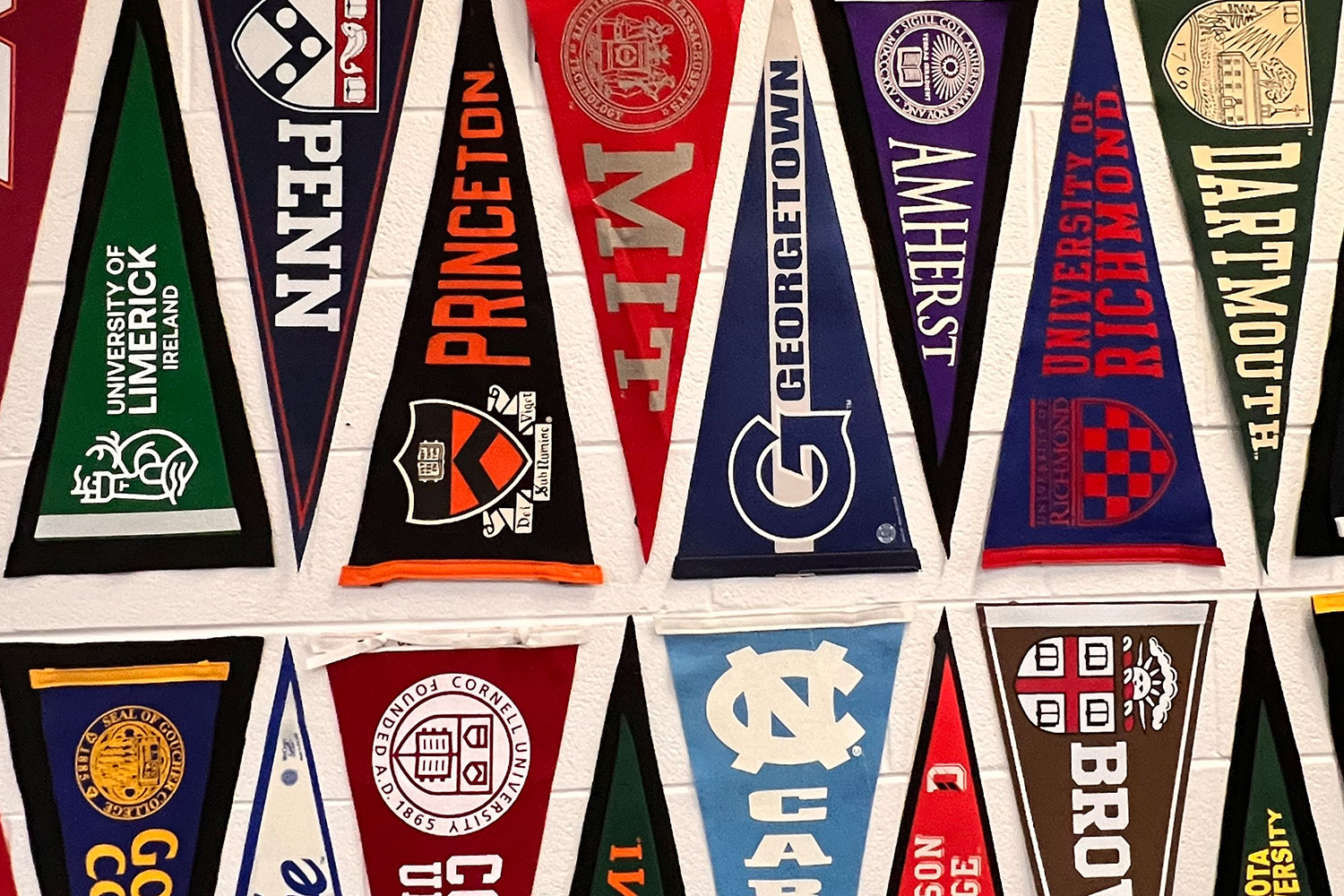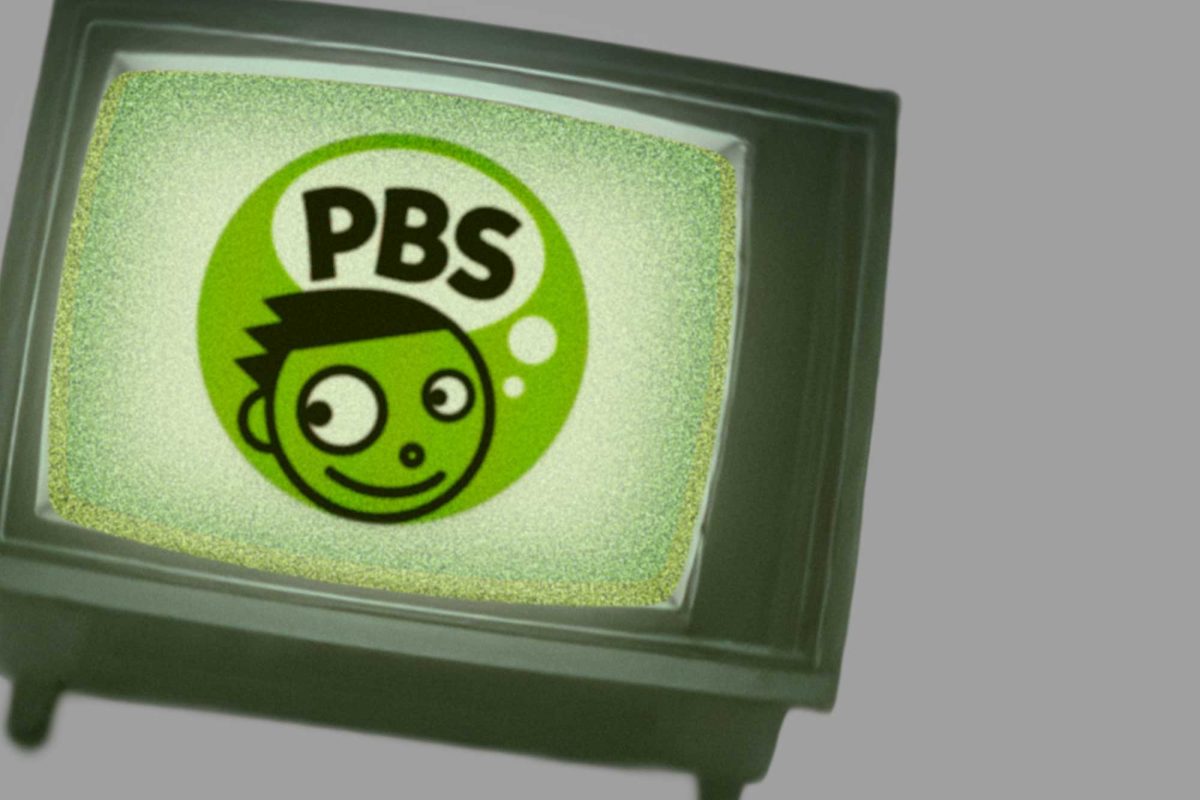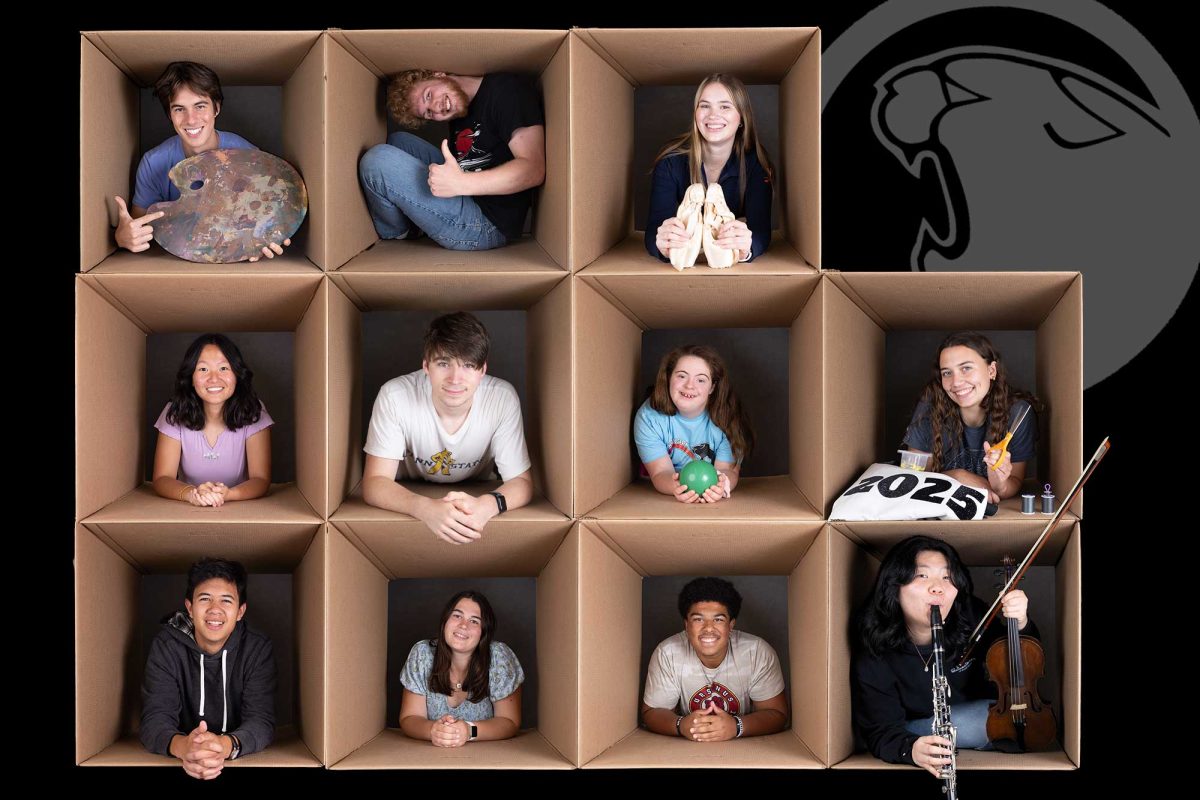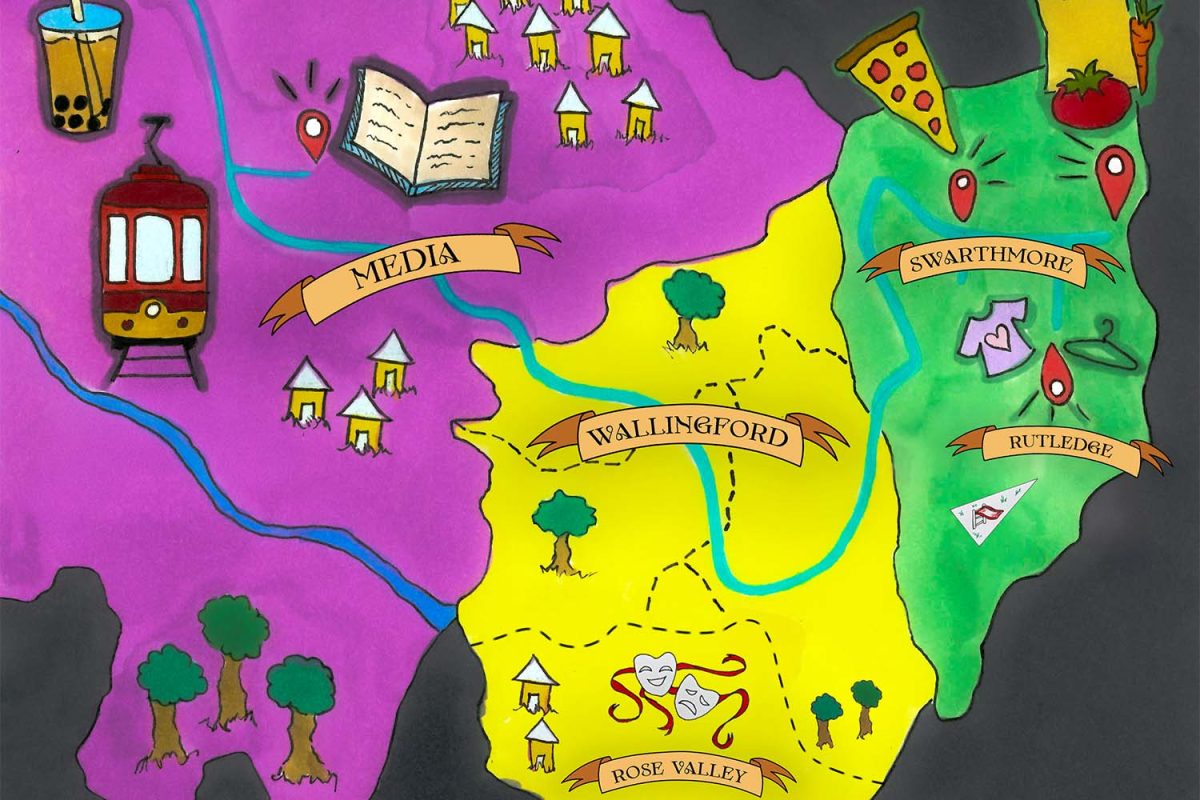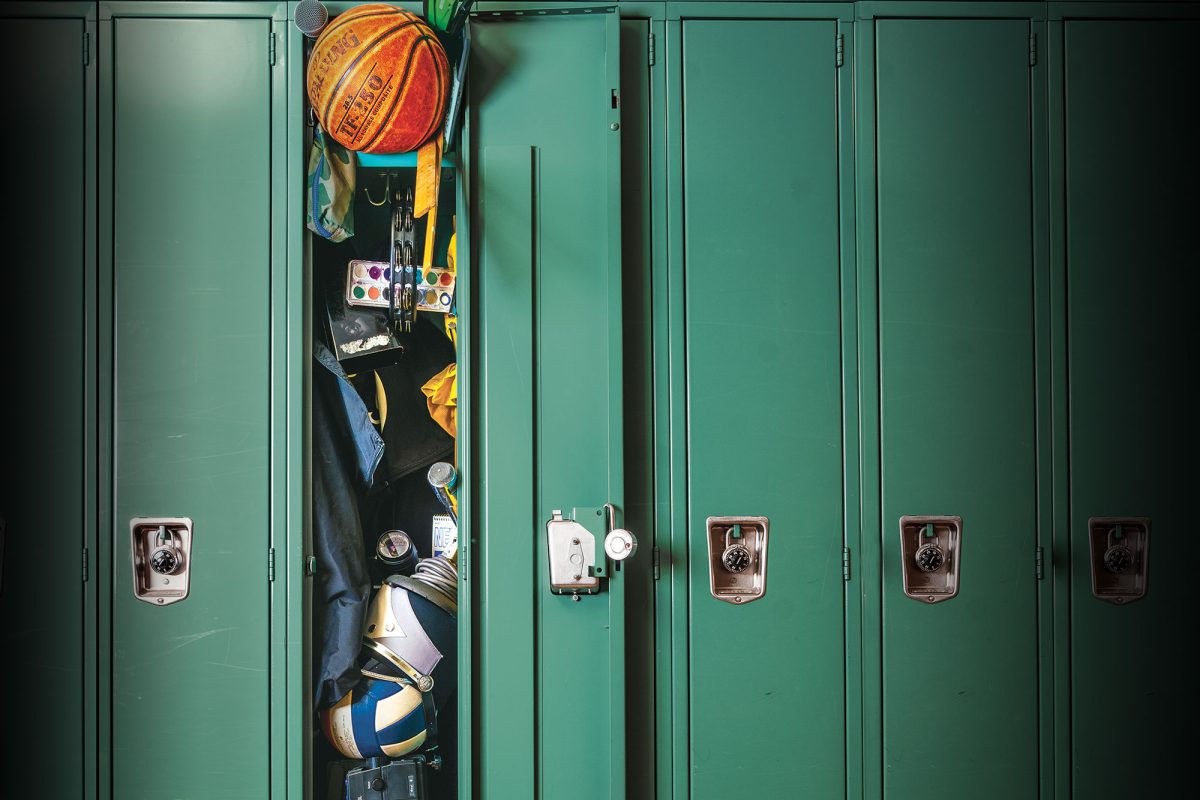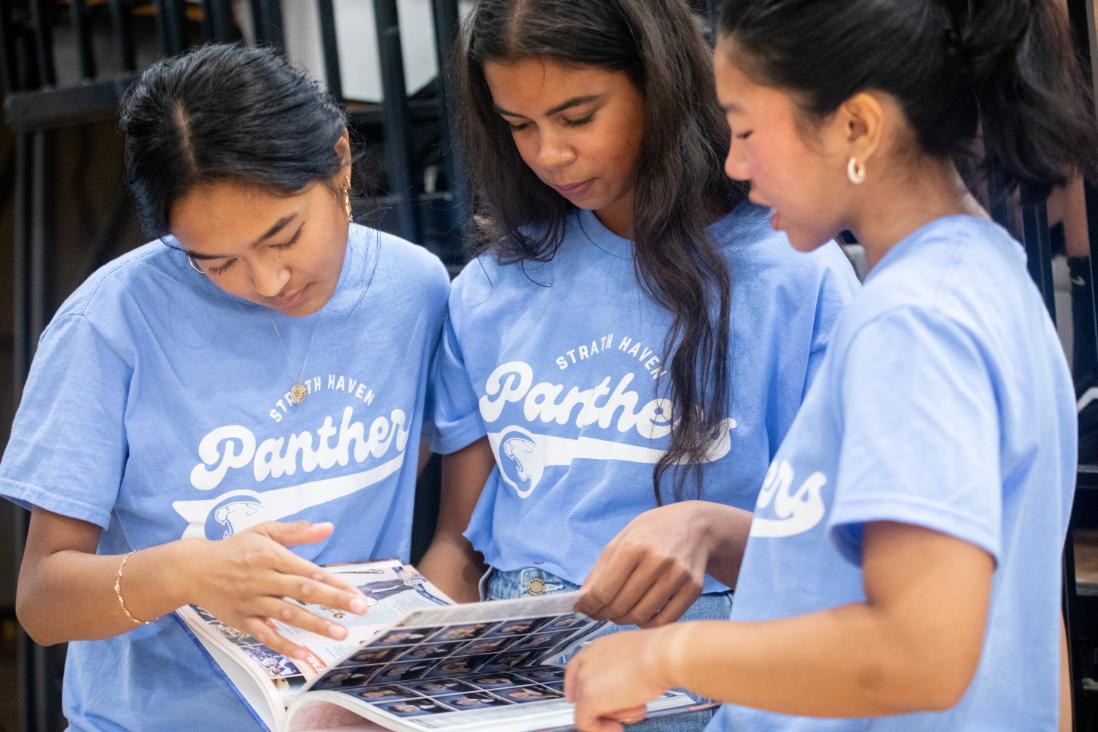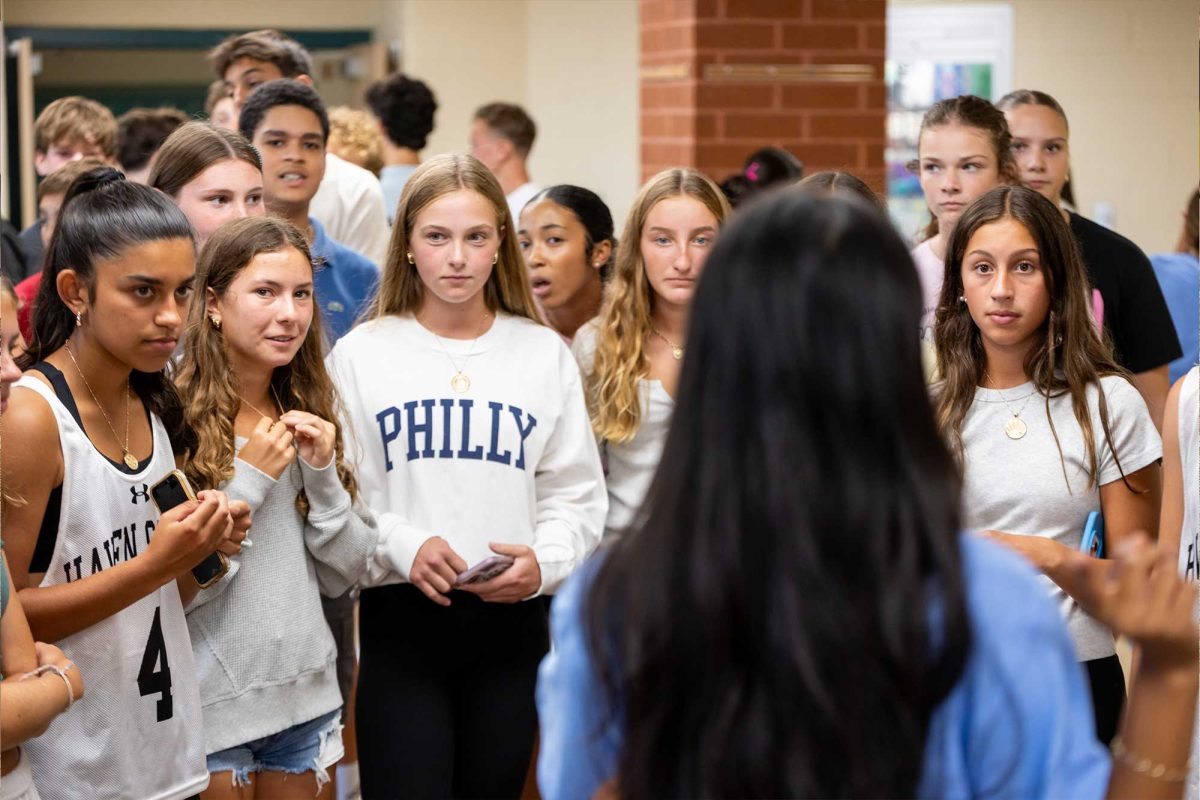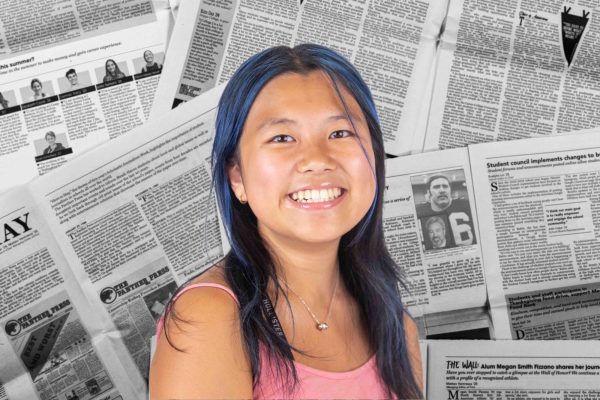“What do you want to be when you grow up?” is a question asked over and over to every kid. Once you reach high school, that question becomes, “Where are you thinking of going to college?”
However, college is not the right path for everyone because it is not a direct path to success. There are many other options, and many factors go into a student’s decision.
Paul Tough, journalist and author of multiple books on higher education, including “The Inequality Machine: How College Divides Us” and the New York Times article Americans Are Losing Faith in the Value of College, emphasized the importance of being proactive and deliberate when deciding whether or not to go to college.
“One of the biggest factors in whether college pays off for an individual is whether you graduate, and so if you don’t graduate, it pays off a lot less,” Tough said. “A lot of it is personal; for that, you have to know yourself, understand people like you from your community, how they tend to do when they go to different institutions.”
Over the past twenty years, the way Americans view college has changed. According to an article by Coastal Wealth Management, a 2023 survey about the value of a college degree to the costs found that 56% of Americans believed a four-year college degree wasn’t worth the cost due to students graduating with significant debt and not gaining specific job skills from college. This differs from ten years ago when 56% of Americans believed college costs were worth it.
Many students struggle to decide whether college and its expenses will be meaningful to them.
“You can see in public opinion, polls become much more skeptical about the value of higher education,” Tough said. “I think that has a lot to do with the cost and the things that have gone along with it, as college has seemed more like an exclusive club that only certain people benefit from.”
Compared to years ago, the feeling of going to college now feels more like a required task for students than an opportunity to learn at a higher level, according to Tough.
“I think more students feel like, ‘This is something I have to do. Without it, my life is going to be a wreck, and maybe even with it, my life is going to be a wreck in a different way. And then we’re going to go into debt,’” Tough said. “When I was a student, it just didn’t feel that way. It felt like, ‘Oh, this is this cool thing that I get to do that is a new opportunity where I get to try different things. That allows both individual students and their families and citizens as a whole to feel better about higher education.”
College Affordability
Affordability is one of the most significant barriers to college, if not the largest. The amount of aid the college gives you is dependent on multiple factors, including when you applied and what your income is.
 “One of the things that makes college finances so confusing for high school students is that everybody pays a different amount and what they’re going to charge you is based on various factors having to do with you and your application, and how much they think you want to go there, which is not only sort of bewildering to a lot of students, but it’s also kind of unfair,” Tough said.
“One of the things that makes college finances so confusing for high school students is that everybody pays a different amount and what they’re going to charge you is based on various factors having to do with you and your application, and how much they think you want to go there, which is not only sort of bewildering to a lot of students, but it’s also kind of unfair,” Tough said.
Haven’s Career and College Counseling Center works with students to help them figure out the bewilderment of college finances and provide some aid resources.
“The sticker price for college is absolutely much higher, but people are not paying the sticker price, there is a lot more aid being given,” Career and College Counselor Mrs. Kristin Dunning said. “So families who say, ‘well, college is off the table, or certain colleges are off the table,’ I think there’s a lot more research to be done.”
According to Dunning, college counselors play a big role in helping students to discern resources that might be available to pay for college.
“I think we, people in the college counseling arena, have a lot more proactive educating to do in order to make sure that people know that there are resources and information out there and that it can be more affordable than they think,” she said.
Class of 2023 alumnus Jack Henry, currently a freshman at private Syracuse University, describes how college affordability also really comes down to the college location.
According to the Education Data Initiative, a four-year non-profit private university has tuition costs that are three times that of a four-year in-state public university– around 282.4% more for private.
“It’s very easy to go to college with very minimal debt in multiple, different ways, but it’s also really easy to have a lot [of debt],” Henry said. “I go to one of the more expensive universities, it’s private in America, and I’m very lucky I don’t personally have to pay, but I have multiple of my best friends that already have thousands of dollars in debt, and they’re not even done their freshman year.”
Henry believes that affordability is a matter of consideration when determining what college is best for you if you intend to go.
For 2015 Strath Haven alumni Jenny Chan, who graduated from Northeastern University, resources for scholarships, grants, and part-time work can help with tuition.
“I was very fortunate and grateful that I got a lot of scholarships just from doing well in high school. It translated that you could get some scholarships for certain colleges you apply to, so that was a lot,” Chan said. “And then in college, I still looked for any monthly scholarships or any other opportunities or school groups you can apply to. There’s a lot of grants, and if you want to study abroad you can do that too.”
Chan also adds how having a part-time job can help add up the costs of paying off tuition.
“From my end for college, I always did some sort of part-time job, even if it’s just a few hours a week,” she said. “It helps and even adds up to help you with spending costs. That helps a lot too when you’re looking for internships and later on full-time, too.”
Figuring out how to receive aid to pay tuition can be a difficult and misleading process. This includes the merit aid process, which offers scholarships to students to pay for college finances.
The Free Application for Federal Student Aid (FAFSA) is supposed to help students measure their eligibility for aid offers. In December 2023, a new version of the FAFSA was released, created to be more streamlined and simpler than its predecessor.
Already, the college admissions process is complicated. Applying for financial aid is even more complex. The new FAFSA form was going to make it easier for lower-income students to see college as a viable option. Instead, it has made numerous errors in tax information.
The Education Department announced that 200,000 out of 1.5 million records released before March 21 were miscalculated. This is in addition to the fact that officials in the Education Department are behind on processing applications, according to The Washington Post and Inside Higher Education.
FAFSA has also released a new version for divorced families where the parent who provides the most financial support share their income and assets, regardless if they are not the custodial parent. This overlooks how FAFSA aid and Government Aid are distributed between the two parents for their child’s college tuition.
“I think the FAFSA problems are very serious, I think it’s going to be extremely difficult, especially for lower-income students to make good and informed decisions,” Tough said.
At the high school level, the Career and College Counseling Center does not have any control over issues related to FAFSA, but does their best to provide advice and resources that allow students to figure out their college financial situations.
“Among their options for addressing the FAFSA situation… there isn’t much school counselors can do beyond advising students,” Dunning said. “We can recommend that students contact colleges’ financial aid offices and use the net price calculator on college websites.”
May 1 is widely known as College Decision Day when students planning to attend college have to commit.
For students who require financial aid, they may not know what school they want to commit to yet because they don’t know how much aid the college will be able to give them. They can’t make the decision, and many are at risk of missing the deadline–or worse, simply giving up because the process has become too complicated to continue pushing through.
Tough recommends that colleges adjust their commitment date to accommodate students still weighing their financial aid options.
The Importance of Passion
The pathway to and after college heavily depends on personal interests.
Henry is on a photojournalism track in Syracuse but still receives a well-rounded education in other subjects. It allows him to explore his interests as a college freshman.
“It’s hard work, but it’s worth it, and you’re learning so much, and they push you and they push you well,” Henry said. “People say coming to college, you’re going to learn all this stuff, but the most important thing is connections with your peers and professors through those classes and just keeping those connections as well… major track-wise, rigorous work, but really fulfilling opportunities that open up.”
Chan, who attended Northeastern University for business and accounting, entered college with a general understanding of the career she wanted to pursue, but college helped her determine exactly what suited her.
“Going to college, you don’t have to decide on an official major until your second year. So during my sophomore year, by then, I had taken a lot of classes in accounting, finance, high-chain marketing, all sorts of business classes. After doing two years of that, I feel like I was more better with numbers,” she said. “I picked accounting ultimately.”
After college graduation, her college experience and the opportunities open to her helped her earn a job as an accountant.
“I’ve been doing that job ever since college graduation,” she said.
Chan believes college can help you determine exactly what you want to pursue.
“I do think it depends on what you want to do… You can either figure out what you want to do while you’re in college, talk to other people, and figure out what kind of jobs are out there and what can suit your personality, or you can do an alternate route and not do college,” Chan said. “But I do think more people do college just to figure it out.”
At Haven, the Career College Counseling Center helps students to figure out their interests both within and outside of the classroom. They start preparing students for their futures in freshman and sophomore year and encourage them to think about themselves academically in class and in provided career curriculum lessons.
“What you’re learning and how you’re learning it, and how you’re learning about yourself as a scholar and a thinker, is part of how you decide for yourselves, what it is you want to continue to learn, how you want to continue to learn, and what areas excite and interest you,” Dunning said.
The app Naviance further provides schools and students the tools to learn more about where most career growth is and what certain careers do specifically. Counselors provide updates and lessons on how to use Naviance throughout high school.
The College and Counseling Center uses these resources to help students think about their future careers and life after college, and whether college is the option for them to pursue that future.
“We help people decide whether or not they want to go to tech school or when they graduate from high school, if they want to go to two-year trade and technical school, whether they want to do apprenticeships somewhere where you learn how to do a trade on the job,” Dunning said.
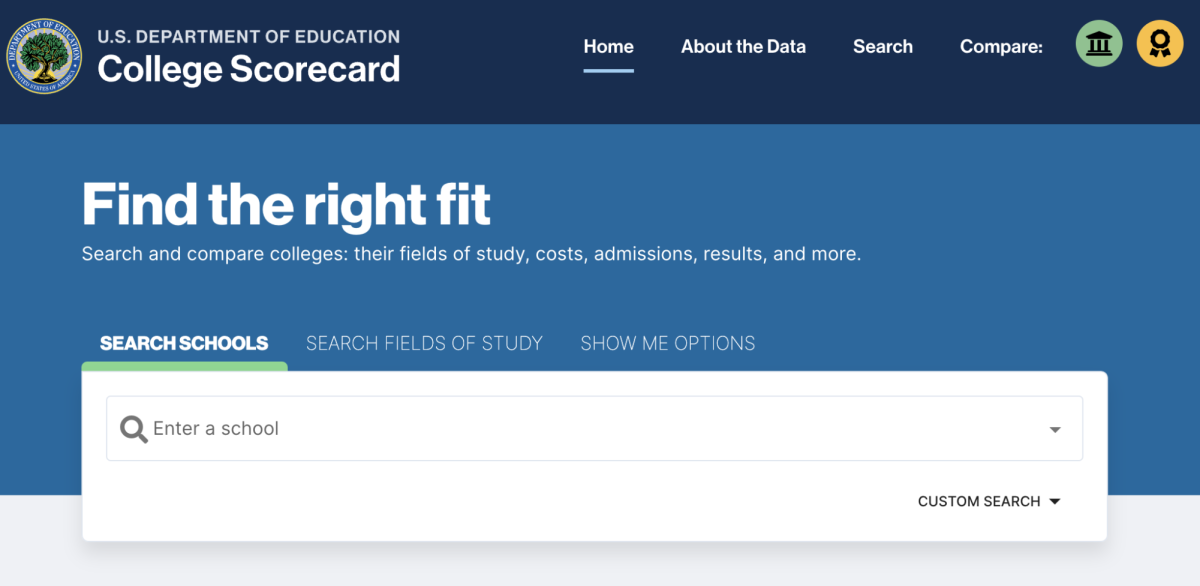
Ethics of Admissions
Today, the system in which colleges admit or decline applicants determines how willing students are to attend college. Part of it depends on fairness and other student qualities outside the application.
“There’s a sort of an overwhelmed and overall bias in the system towards affluent families. And it’s up to the individual institutions and their admissions departments to reverse that,” Tough said.
Tough recommends ways to make colleges more accessible, including lowering tuition costs and eliminating legacy exceptions. Legacy exceptions are when a student is accepted into a university because of a family history or tie to that university.
He also emphasizes changing schools’ admission system–-like that of University of Texas Austin’s system of automatically admitting Texas students in the top 6% by GPA of their school. It used to be 10% but was amended to 6% in October 2023.
UT Austin is a flagship school of the University of Texas, and it is Texas’s government that creates and enforces this system with Senate Bill 175.
“Whether you live in an exclusive rich neighborhood in Dallas, or a little farm town in west Texas, or a Latino community on the Rio Grande Valley, that allows [UT Austin] to ignore test scores, which is really important,” Tough said.
The law puts lower-income students on a level playing field with higher-income students who can more easily participate in expensive sports, test prep classes, and extracurricular activities.
UT Austin’s admission process allows for a more diverse and academically powerful class by allowing high-achieving students from all schools to bypass the more biased admissions process.
Advice and Resources
Preparing for college or life after high school is difficult. For families who are sending their children to college for the first time, they may need a bit more support.
 “The application is definitely a little difficult, and some people make it more difficult for themselves, and it stresses people out,” Henry said. “I was very lucky that I had family that had gone through it before and kind of knew that there was no need to overdo it… I think it can be really stressful or it can be really straightforward, and it has a lot to do with how much support you have, and certainly some people just don’t have as much support.”
“The application is definitely a little difficult, and some people make it more difficult for themselves, and it stresses people out,” Henry said. “I was very lucky that I had family that had gone through it before and kind of knew that there was no need to overdo it… I think it can be really stressful or it can be really straightforward, and it has a lot to do with how much support you have, and certainly some people just don’t have as much support.”
Utilizing online and third-party resources, such as Third Way and the Department of Education resource College-School Scorecard, can help students make informed college decisions.
According to former Director of the College Scorecard Michael Itzkowitz, the College Scorecard is the main federal initiative aimed at expanding college options for prospective students. It’s especially helpful for those who need help navigating college decisions. He says that it is used by around a quarter of the four million students who enter postsecondary education.
“At the time, there weren’t a lot of tools for students able to assess whether or not they were getting a good bang for their educational buck,” Itzkowitz said. “So we, at the Department, decided to put all this information together, placed it on a website, so that students would have a better idea of whether or not they were likely to graduate, get a good job, and be able to pay down their loans after attending an institution of higher education.”
There are predictable aspects, Tough mentions, but a lot of aspects of college success are difficult to measure.
Itzkowitz emphasizes the importance of considering a wide range of options.
“I think in general college is still a very good investment,” he said. “But I think that there’s been a misperception that any college you go to will ultimately pay off and pay its dividends. The institution that advertises the most may not be the best one for students. It might be the local community college or might be the four-year college within your state.”
Tough also addresses the stereotype that goes into the entire college selection process and finding what fits best for your current needs.
“I think for a long time, the rule that adults told high school students was that you should go to the most selective institution that admitted you,” he said. “And some of that I think is just we’d like to be elite and exclusive and some of it is genuinely that more selective colleges spend more on their students and tend to have a better impact on their ultimate financial status.”
Tough believes that the decision to enter a more selective college with higher costs is not worth it, even if it feels like a privileged opportunity–like an admission to a club–-and that the value of college selection should be just as important to be considered.
Is college worth it?
College and its application process, costs, and selection process remain a fiery debate. The idea of college comes with both pros and cons.
The decision to go or not to go to college comes with major decision-making and consideration. Henry believes this choice should be based on personal interests and life goals.
“It’s not for everyone, and you really got to know that and don’t force it,” he said. “You will fail if it’s not for you. If you’re going to go to college, you better be sure that you want to put in the work. It’s fine if it’s not for you, but just make sure you have a plan. It’s a really tough decision and you don’t know until you go.”
For Chan, she believes there is no wrong answer in determining whether to go or not to college, but a tool to help students figure out their path into adulthood.
“I would say college is more like a launch pad, and it’s really up to the individual with what they want to do with their time in college when they do after college,” she said. “There is no wrong answer, but I do think it is a little easier to figure out who you are through college.”
For Dunning, it is important to define what experience after high school means the most to you.
“I think the experience of living away from home in a fairly protected environment with a lot of structure, so you’re independent but not totally independent, where you’re getting to participate in clubs and activities in a little bit of a bubble, is very valuable,” Dunning said.
There are other questions students should ask themselves to help figure out what is most meaningful to them, such as what kind of experience they are looking for, how far from home they want to be, and what skills they want to have after college.
“You have to define what ‘worth it’ means,” Dunning said.
College is worth it if the education outweighs the cost. For a full four years, a reasonable, affordable tuition, and a career path the student is fairly confident in, college is worth it. But there are other options, and the most important part to consider is the quality of education in ratio to cost.
“[Current student generation] don’t get to think about college the way people used to think about college, which was four years to understand yourself and learn about the world and become independent, and meet people your age from different backgrounds,” Tough said.
“But it’s important to at least keep sight of the fact that actually, the biggest value to any individual of what happens in those years is more personal, more psychological, more emotional.”



